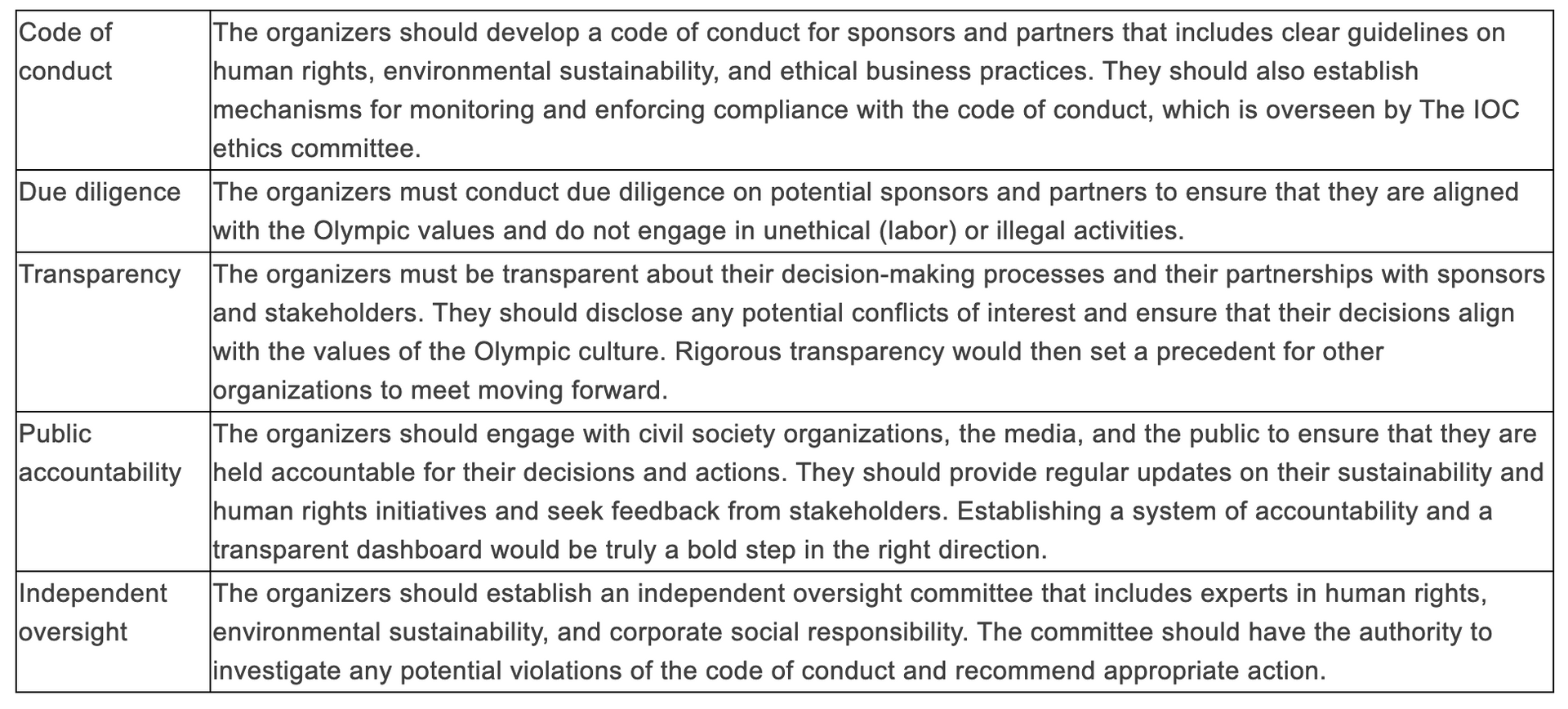Moving Towards A Sustainable Paris 2024
The International Olympic Committee, The French National Olympic Committee, and the French government commit to sustainability practices for the Paris 2024 Olympic Games. ISSP Board Member Gary Tong, Senior VP at Alix Partners, analyzes what that might look like and why it matters.
The International Olympic Committee (IOC) and The French National Olympic Committee along with the French government as organizers of the Paris 2024 Olympic Games have made a commitment to sustainability. I have gathered some key initiatives that are being undertaken:
One of the primary objectives of the Paris 2024 Olympic Games is to achieve carbon neutrality. This entails minimizing emissions across all aspects of the Games and offsetting any remaining emissions through the purchase of carbon credits. Additionally, every product associated with the Games will be labeled with a carbon emission score, providing transparency, and raising awareness of the environmental impact.
Sustainable transport is another crucial focus area for the organizers. They aim to prioritize sustainable transport options such as public transportation, cycling, and walking, with the goal of reducing the reliance on private vehicles. By encouraging these eco-friendly modes of transportation, the Games can minimize congestion, decrease emissions, and promote healthier lifestyles among athletes, spectators, and the local community.
Sustainable sourcing is another critical aspect of the Paris 2024 Olympic Games' sustainability initiatives. The organizers are committed to sourcing sustainable products and services, including food, merchandise, and building materials. By prioritizing environmentally friendly options and considering factors such as resource usage, fair trade, and ethical practices, the Games can have a positive impact on local and global supply chains.
The protection and restoration of biodiversity are also prioritized by the organizers. The Games aim to embrace sustainable land and real estate management practices, promoting the conservation of natural habitats. Furthermore, the use of green building techniques is encouraged, with a specific target for all public buildings funded by the French state, including those within the 2024 Paris Olympics complex, to be constructed from at least 50% timber or other natural materials by 2022. This commitment aligns with the broader goal of reducing the ecological footprint associated with construction activities.
In addition to environmental considerations, the Paris 2024 Olympic Games also emphasize social responsibility. The organizers are dedicated to promoting diversity, inclusion, and equality throughout all events. By providing economic opportunities for relevant communities and ensuring equal participation and representation, the Games commit to serving as a platform for positive social change.
I am sure that these organizers are taking a comprehensive approach to sustainability, but some researchers don’t think that it is as easy as IOC has reported. UN’s policy brief No. 128 addressing Climate Change Through Sport pointed out that some efforts towards more comprehensive assessments have been taken by the IOC, UEFA, and FIFA in relation to the Olympics, the European Football Championships, and the World Cup. Additionally, sport practitioners, according to a study by Texas A&M University, can feel constrained from engaging in environmental initiatives due to a lack of support from their organization’s upper management and ownership, or uncertainty about fans’ responses. Some suggested steps, below, as to what the organizers for Paris 2024 Olympic Games can do to prevent some of the greenwashing concerns that might well ensue.

By implementing these measures, I am sure that the Paris 2024 Olympic Games can align with the values of the
Olympic Movement and prioritize sustainability throughout their operations. These initiatives not only demonstrate a commitment to environmental responsibility but also emphasize social inclusivity and economic opportunities for relevant communities. The Games aim to set an example for future events — they hold the potential to inspire a global audience to prioritize sustainability and work towards a more sustainable and equitable world.
About the Author:
Gary Tong, M.Sc.
Senior Vice President, Alix Partners
ISSP Governing Board MemberNew Paragraph
Read perspectives from the ISSP blog



